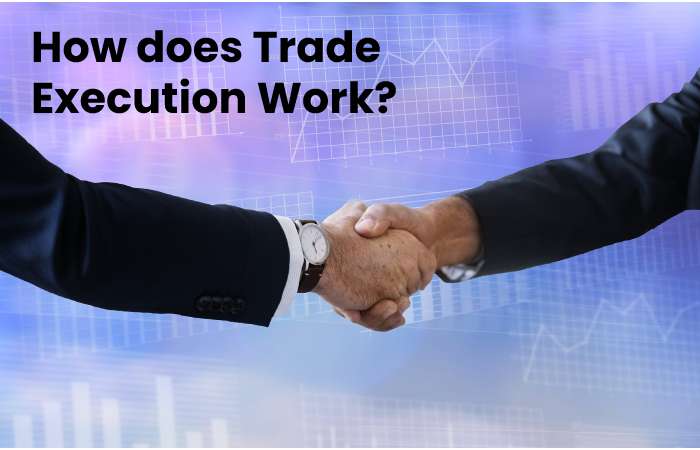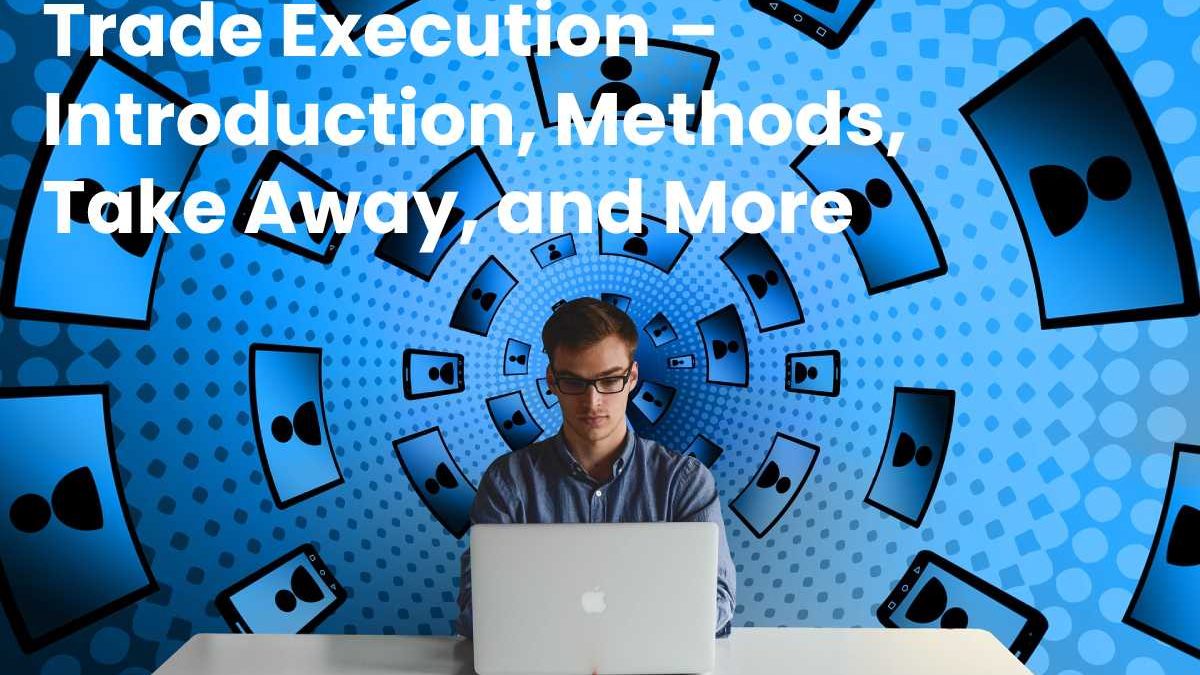Table of Contents
What is Trade Execution?
Trade Execution – Transaction execution occurs when a buy or sell order executes. To execute a trade, an investor using a brokerage account must first submit a buy or sell order, which is then sent to the broker. On behalf of the investor, the broker will decide which market to ship the order to. Once the order reaches the market and is executed, it can only be considered completed.
Various Trade Execution Methods
1. Market Maker
Instead of sending the order to the market, the broker can choose to send it to the market maker. A market maker is a company that buys or sells shares. To encourage brokers to send them orders, the market maker may pay the broker to direct the flow of orders to them. This payment is called “Payment for Order Flow”.
2. Over-the-Counter (OTC) Market Maker
Investors can trade stocks without a prescription. In this case, the OTC market maker can pay the broker to request that the order be sent.
3. Electronic Communication Network (ECN)
Buy and sell orders from investors can be sent to the ECN, where a computer system matches buy and sell orders. It can especially happen if a specific order occurs, i.e. when the investor asks for a special price to purchase and sell shares.
4. Normalization
Sometimes the broker’s company may already have shared. In such a case, the transaction is carried out internally by fulfilling the order using the company’s inventory. The broker may be able to take advantage of this execution if there is a gap between the bid and ask spreads.
Also Read: Document Management – Introduction, Work, Process, and More
How does Trade Execution Work?

The broker can execute the order once it receives in several ways. They can send this to an exchange like the New York Stock Exchange (NYSE), to a market maker, their electronic communications network, or even to complete a transaction using their stock listing. Below is an explanation of each:
- Market exchange: Your broker may send orders to a major exchange such as NYSE or Nasdaq to execute trade orders.
- Market Maker: A financial company that buys and sells securities at the prices listed on the stock exchange.
- Electronic Communications Network (ECN): An Electronic Communications Network (ECN) is a network that automatically matches buy and sell orders at specified prices.
- Stock List: Many brokers keep an inventory of the securities from which they place to buy and sell orders. It is also called “assimilation”.
- Although orders are usually filed digitally, they are not instantaneous. It can also divide into separate lots for sale as quotes are only for specific stocks.
Trade Execution is not Instant
Many investors who trade through online brokerage accounts assume they have a direct connection to the stock markets. But they don’t. When you press this enter key, your order is sent online to your broker, who decides which market it will be sent to for execution. A similar process happens when you call your broker to make a deal.
While trade execution is usually smooth and fast, it takes time. And prices can change rapidly, especially in fast-moving markets. Because quotes are only for a certain number of shares, investors may not always get the price seen on their screen or the price given by the broker over the phone.
Also Read: Calligraphy Cursive Writing – Introduction, Benefits, Basics, and More
What does this Means for Individual Investors?
In general, most investors may not realize that they do not have a direct connection to the stock markets. However, understanding how your orders execute gives investors peace of mind knowing how to handle their money and move their shares.
Also, understanding the broker’s options for executing a trade can make a lot of money if you are a day trader, as time and price are significant factors.
Also Read: Arteck Wireless Keyboard – Introduction, Relation, Use, And More
Take Away
Execution of trades is when a broker receives and fulfils an order to buy or sell a security.
Brokers have several options for executing orders, including sending orders to major markets such as the New York Stock Exchange or market makers.
Brokers should execute orders at the best price.
Trade settlement, when the buying or selling is reflects in your account, occurs after the trade execute.
Also Read: Eagle Trading – Introduction, Investor, Advantages, and More

